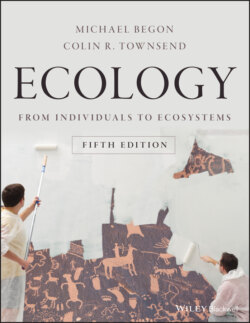Читать книгу Ecology - Michael Begon - Страница 100
4.5 Dormancy
Оглавлениеmigration in time
We will discuss in Chapter 6 how an organism gains in fitness by dispersing its progeny ‘elsewhere’, as long as the progeny are more likely to leave descendants than if they remained undispersed. Similarly, an organism gains in fitness by delaying its arrival on the scene, so long as the delay increases its chances of leaving descendants. This will often be the case when conditions in the future are likely to be better than those in the present. Thus, a delay in the recruitment of an individual to a population may be regarded as ‘migration in time’.
Organisms generally spend their period of delay in a state of dormancy. This relatively inactive state has the benefit of conserving energy, which can then be used during the period following the delay. In addition, the dormant phase of an organism is often more tolerant of the adverse environmental conditions prevailing during the delay (i.e. tolerant of drought, extremes of temperature, lack of light and so on). Dormancy can be either predictive or consequential (Müller, 1970). Predictive dormancy is initiated in advance of the adverse conditions, and is most often found in predictable, seasonal environments. It is generally referred to as ‘diapause’ in animals, and in plants as ‘innate’ or ‘primary’ dormancy (Harper, 1977). Consequential (or ‘secondary’) dormancy, on the other hand, is initiated in response to the adverse conditions themselves.
